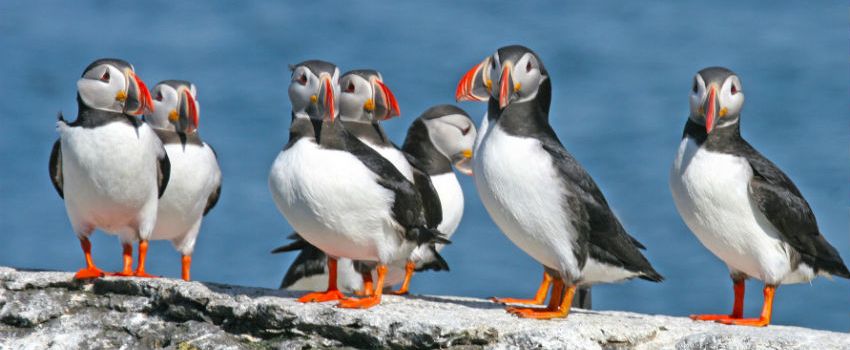
The puffin population living on the remote islands of Northumberland Farne Islands that are cared for by the National Trust is stable according to the results of a survey conducted once every five years. Last year there was speculation that the low numbers on the outlying islands were because of a long, harsh winter and lack of readily available food and there were fears that this could well be the case across the entire island chain.
Fears were unfounded
It now appears that the low numbers initially reported were the result of a robust seal population that resulted in puffin burrows being crushed on the outer islands. On the inner isles though more birds were nesting in response. The results of the survey suggest that the population of puffins has stabilised across the archipelago at around 44,000 pairs, an increase of nine per cent since the previous count which took place in 2013.
A lot of angst
Over the last quarter century, the population has steadily increased and peaked in 2003 before suddenly crashing in 2008. The population has started to slowly recover. Thomas Hendry of the National Trust says initially there was a lot of anxiety following the count on the group of outer islands, however after further investigation and a count of the population on the inner group of islands, the numbers appeared to be much more positive.
National Trust responsible for robust population
Puffins have been successful on Farnes largely as a consequence of the good work done by National Trust rangers who have increased the level of protection of the marine areas surrounding the islands as well as a lack of predators and availability of suitable nesting areas. The big risk is that climate change will eventually put the squeeze on the population in Farnes forcing the birds to travel further to feed as well as increase the number of storms during winter affecting the population at sea. As a result, surveys will now take place annually.
Possible to tackle the challenges faced
Harriet Reid another National Trust ranger who is one of 11 that reside on the islands between March and December says annual monitoring will allow the team to better track numbers against likely causes of population change. It is important that the UK contributes to the global population picture so that experts can better understand and discover what the key factors that affect these birds are and what more can be done to help. If the root cause behind the decline is what is suspected, it is possible to prevent overfishing, cut down on single use plastics as well as reduce dependence on non-renewable energy.





